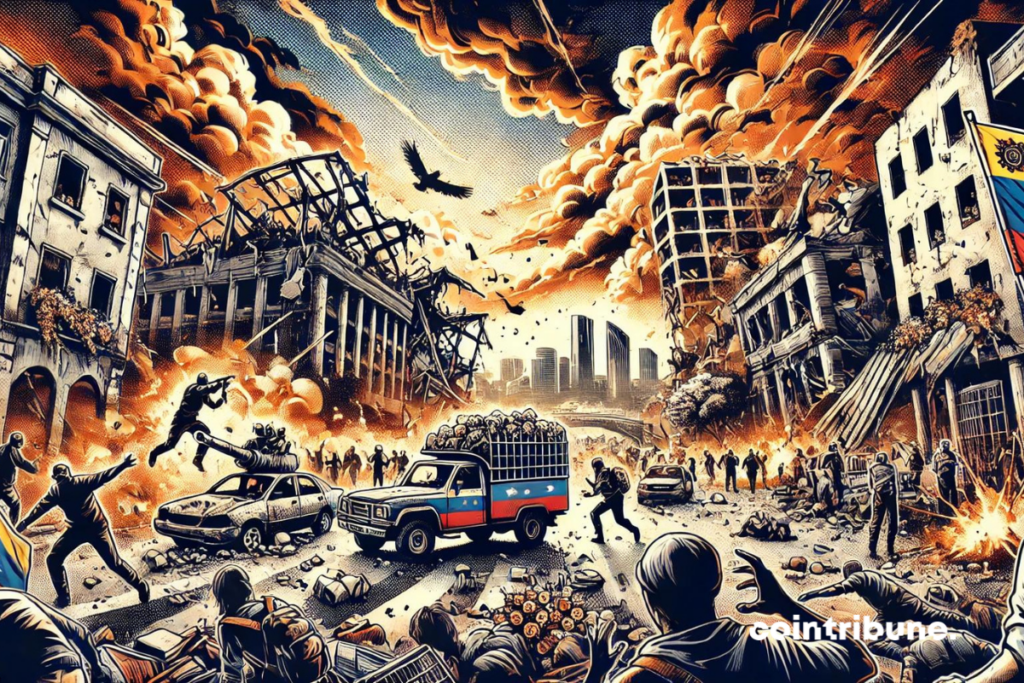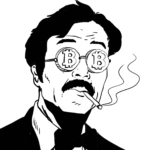The total and Imminent Collapse of Venezuela
While Maduro seems to have set up massive election fraud to stay in power, Venezuela is tragically marching towards a total and imminent collapse.

Maduro is said to have won the elections
Venezuela has just held elections. The long-standing president, Nicolas Maduro, declared himself the winner, but it is widely believed that he rigged the results.
Only a few countries have recognized Maduro’s victory, and the list is not encouraging – China, Russia, Iran, North Korea, Syria, Cuba, Nicaragua, Honduras, and Bolivia.
The Venezuelan people, angry over the apparent stolen election, have taken to the streets, and a few people have died so far.
Why is Maduro so unpopular?
Obviously, it’s largely because he is an authoritarian ruler who rigs elections and uses government force against protesters.
But the deeper reason is that under his leadership, Venezuela has suffered the kind of catastrophic economic collapse that usually only happens to countries ravaged by war.
The Venezuelan economy is so bad (and the government so secretive) that the World Bank doesn’t even have GDP estimates for the country. But officials at the Maddison Project estimate that the standard of living of Venezuelans is now as low as it has been since World War II.
Venezuela does not have a centrally planned regime like North Korea or the former USSR.
The death of the Venezuelan economy
What destroyed the Venezuelan economy?
- Interference with the operation of the Venezuelan state oil company, PDVSA
- Expropriation and nationalization of a large number of private firms
- Responding to inflation with price controls
A monetary crisis
Recall that most countries need foreign currency to buy imported products.
If the value of the currency crashes, consumers can no longer afford to buy everyday goods.
The Venezuelan currency, the bolivar, was officially devalued in 2018. But looking at the black market, where Venezuelans trade bolivars for dollars, the Venezuelan currency began crashing in mid-2012, losing 90% of its value against the dollar by September 2016.
The collapse of the currency was accompanied by hyperinflation. Official statistics show that inflation gradually increased to 200% by early 2016. The currency collapse and hyperinflation led to a collapse in Venezuelans’ ability to buy basic goods.
A few consequences of this slump:
- Mortality rates are skyrocketing
- Public services are collapsing one by one
- Three-digit inflation has plunged over 70% of the population into poverty
- An unmanageable wave of crime keeps people locked inside at night
- Consumers have to queue for hours to buy food
- Babies are dying in large numbers due to a lack of simple and inexpensive medicines and equipment in hospitals
A petro-state
Venezuela is a petro-state, which means it heavily depends on crude oil for its export revenues and state revenues. But not all petro-states are equal.
Although, on paper, Venezuela has the world’s largest proven oil reserves, it is mostly heavy oil, which is much more difficult to extract.
Fortunately for Venezuela, it received the necessary investments for a long time, thanks to its forward-thinking and competent state oil company, PDVSA.
But in the late 1990s and early 2000s, Venezuelan leaders began looting PDVSA’s investment budget.
Chavez’s mismanagement of PDVSA was setting the country up for total disaster. When oil prices crashed in 2014 (shortly after Chavez’s death and Maduro taking power), PDVSA’s chronic underinvestment under Chavez and Maduro began to show.
Production started to plummet and the government’s oil revenues collapsed.
Thus, one of the main causes of Venezuela’s collapse is Hugo Chavez’s mismanagement of PDVSA.
Expropriations and nationalizations
Hugo Chavez was extremely hostile to private businesses.
The Chavez government expropriated or nationalized numerous companies involved in various sectors, including aluminum, cement, gold, iron, steel, agriculture, transportation, electricity, food production, banking, paper, and media.
The number of private firms in the industry dropped from 14,000 in 1998 to just 9,000 in 2011.
As state control over agriculture increased, Venezuela’s food production dropped by 75% in two decades, while the country’s population rose by 33%.
Price controls
Chavez and Maduro also made extensive use of another very destructive policy: price controls.
Hugo Chavez started using price controls well before hyperinflation hit. It was another populist policy intended to provide cheap goods to the poor. As expected, this led to shortages by the mid-2000s.
As shortages of virtually every basic product (from rice to milk to deodorant and condoms) worsened, it became almost impossible to find even a roll of toilet paper in Venezuela.
Chavez and Maduro destroyed the Venezuelan economy with destructive policies. The drop in oil prices in 2014 certainly didn’t help, nor did U.S. sanctions in 2017. But the main mistakes were PDVSA mismanagement, nationalizations, and price controls. Venezuela thus serves as a warning to other countries. One must truly beware of leaders like Chavez/Maduro who think that “revolution” means destroying all of the country’s economic institutions. It’s the path to ruin and madness!
Maximize your Cointribune experience with our "Read to Earn" program! For every article you read, earn points and access exclusive rewards. Sign up now and start earning benefits.

Chaque jour, j’essaie d’enrichir mes connaissances sur cette révolution qui permettra à l’humanité d’avancer dans sa conquête de liberté.
The views, thoughts, and opinions expressed in this article belong solely to the author, and should not be taken as investment advice. Do your own research before taking any investment decisions.